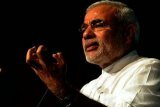Theory of Rebirth
Indian philosophy is about this unseen, un-perceivable and subtlest of the subtlest all-pervading substratum entity in all beings, i.e. the “Life-Principle” i.e Existence i.e Being with Pure Consciousness, referred as Brahman in Vedic texts. Being life principle, Brahman is eternal, existence un-caused, un-changeable, un-tainted, un-bounded, un-perishable, and independent and Shanthi-Swarupa (tranquil & actionless) by nature. Awareness of that Absolute Existence (sat) is Pure Consciousness (chit), the Knower of everything else, energiser and illuminator of everything else. The all-pervasive Pure Consciousness when cased in a body frame is called Soul, Self, Atman, etc in scriptural texts. (Like space being called “pot-space” when cased in a pot) Every living being has a soul which by its nature eternal, un-changing etc. This Soul, i.e. Self, i.e. One’s existence, should not be confused with the play of mind, intellect and sense organs. Though it is the energiser behind their play, it is apart from the actual play as such. Thoughts, desires, emotions, actions and experiences are the functions of body, mind, and intellect and not to be confused as belonging to the Self-within, which is actionless though their Energiser.
Eternal nature of Soul proved and accepted, then, by extension, it means that there is life after death and that at death, what dies or rather disintegrates is only our body frame which is just inert matter of flesh and bones. Death is only of that name and the particular form & features. Bhagwad Gita says “This is not born or dies at anytime. This is eternal, changeless, ancient; is not killed when body is killed” (CH II-20). Now, when one dies and body is cremated or burnt, what happens to the desires, thoughts and emotions – do all these also perish along with his body matter? Soul, i.e. Self i.e. Pure Consciousness, illumines mind, intellect and sense organs. Thoughts, desires, emotions are the products of mind and intellect, clouding the illumination of the Pure consciousness. Depending upon the opacity of mind and intellect, illumination is less or more. Thus, in variance with transparency of mind and intellect, reflection differs in purity. By opacity of mind and intellect is meant the layers of thoughts, desires, emotions and experiences. Lesser these are, more the transparency and purer the mind’s reflection of Pure Consciousness. This conditioned individual consciousness, if we may call it so, once created is imperishable and can be expiated only by experiencing their effects. Thus, we have the Soul and our thoughts, desires, emotions and actions surviving disintegration of body matter. What happens to these survivors is explained by the Theory of Re-birth and Doctrine of Karma in Indian Philosophy.
Consciousness finds its fulfillment and expression only in bodily existence, which means Consciousness and bodily Existence are inseparable, homogenous one only, like heat of fire and word and meaning. Therefore, Soul, i.e Consciousness, must take up another body for its fulfillment and expression. This is the basis of theory of Re-birth. However, consciousness is different from body by its nature & is not to be confused as an attribute of body because while consciousness is imperishable, body is subject to decay & disintegration. Devoid of consciousness body is mere matter, but consciousness is even when body is killed. According to Laws of conservation of Energy and Theory of Evolution, nothing in the Universe perishes to total extinction. There is only a change of that specific form – from gross to subtle. From subtle came forth the Gross and therefore unto subtle the Gross must devolve, and must again evolve into gross, thus conserving energy in the universe at all times. In accordance with this Law, at death, nothing really perishes to total extinction. Our gross body which is constituted of elements of fire, water & earth was evolved from subtle body constituted of the subtle elements of fire, water & earth must devolve into subtle body upon death and must again evolve into a gross body. This is the theory of Re-birth, a unique and well-founded assertion of Indian Philosophy.
There is different understanding of immortality in different contexts by different seekers. To some seekers it is freedom from fear of death and more importantly from the cycle of birth and death. Another understands it as continuation of the soul’s journey taking up a new body when severing from the previous body. To some immortality also means the imperishability of anything as assured by the laws of conservation of energy. To those on the path of devotion being one with the blissful existence drinking nectar of immortality. To the Jnyani, it is union with Existence-Knowledge-Bliss of tranquility. To those on the Path of Action, it is the eternal enjoyment of celestial pleasures in the Kingdom of Heaven. Some believe that immortality is attainment of ”brahmaloka” and enjoying their unparalleled blissful experiences until its cosmic dissolution and a few others believe that it is attainment of “satyaloka”, completely dissolving into the truth of truths itself.(Note: Lokas refer in vedic text namely, buhlok(the world of beings), pitrulok ( world of manes), swargalok ( world of gods), brahmalok (world of lord brahma), satyalok ( world of truth of truths) – these are different planes of consciousness)
That we cannot connect to the events and experiences of past life is no demerit to the theory of rebirth, because memory faculty routinely fails us in recounting many events & experiences of our childhood or boyhood even of this lifetime. Time is a great effacer of memory power and so it is meant to be for the greater good of the scheme of creation.
N Balasubramanian is an old time honours graduate in economics and has vast experience and expertise in human relations and resources development. A devotee of Sage of Kanchi - Maha Swamigal, N Balasubramanian is living a quiet and meditative life based upon the Guru's teachings. An avid reader of philosophy in his younger years, he wholly devotes his energies presently, in discovering insights and practical wisdom from ancient Indian scriptures. Based upon his understanding of Acharya's discourses and writings on spirituality, N Balasubramanian shares these thoughts on IndiaNewsBulletin.com to just provoke your thoughts and kindle your interest in spirituality and philosophy.
Most read
- 2017: Full list of Indian States, capitals and their Chief Ministers; Nitish Kumar quits and takes oath again as Bihar CM!
- List of all the major rivers of India: Names, Origin and Length
- Ram Nath Kovind is 14th Indian President after Pranab Mukherjee. Here's a list of all Indian Presidents since 1950
- Indian cabinet September 2017: Full list of Ministers and their portfolios in Narendra Modi government
- Dosa recipe: How to make crispy Paper Dosa and Masala Dosa
- Bollywood Dream Team 2016: Katrina, Alia, Sidharth, Varun, Parineeti, Aditya Roy Kapur US tour in August
- South Indian actress Trisha Krishnan’s father passes away
- Recipe: Misal Pav – how to make missal masala, usal and tarri
- Navrangi Navratri 2016: UK Indians revel in the traditional magic of garba and dandiya in London
- Barfi! launches a new face in Bollywood, but who is Ileana D'Cruz
India News Bulletin by email
More Lead Stories
- Pics: Salman Khan in London for his Global Diversity Award
- Osterley Gymkhana London hosts 70th Indian Independence Day Celebrations
- Indian tourists involved in fatal collision on M1 motorway involving minibus and 2 lorries
- 2017: Full list of Indian States, capitals and their Chief Ministers; Nitish Kumar quits and takes oath again as Bihar CM!
- Indian train meals not protected from rats, cockroaches, dust, insects, warn auditors












